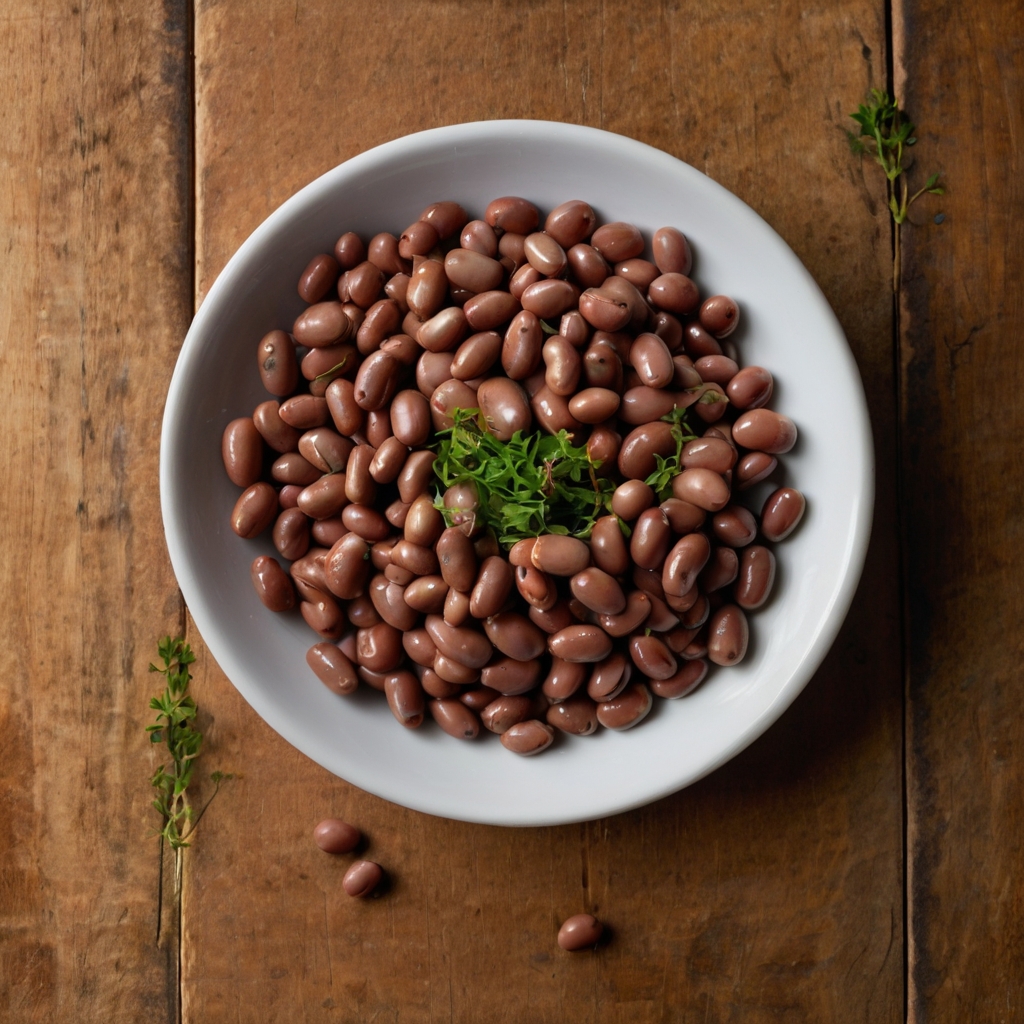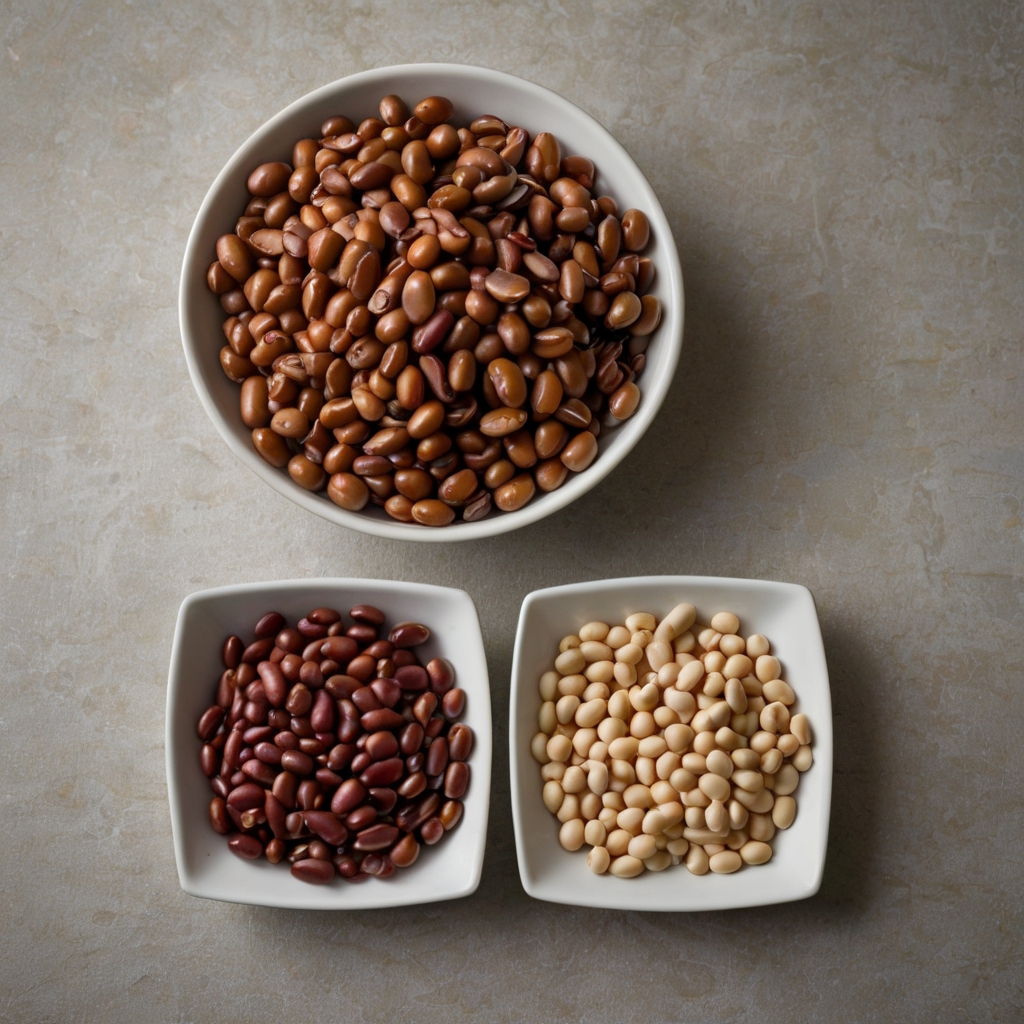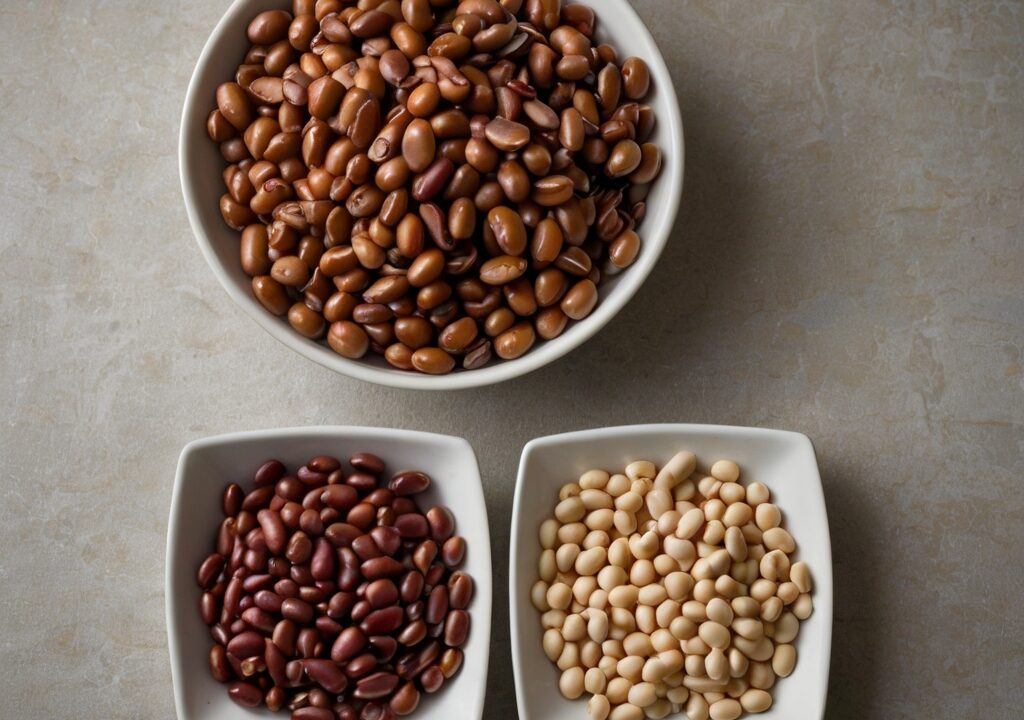How Long Do Cooked Beans Last in the Fridge
How long do cooked beans last in the fridge? Many home cooks ask this question when they prepare a big batch of legumes. Cooked beans stay fresh between 3 to 5 days in the refrigerator. Some experts say they can last up to a week and the flavors might get better after a day or two of storage.
Quick action makes a difference after cooking your beans. Food safety experts warn that cooked beans should not stay at room temperature beyond two hours because bacteria can grow. The storage timeline stays the same for black beans, pinto beans, or green beans. The beans need to cool down and go into the fridge within an hour of cooking to stay fresh and safe. The right storage container plays a big role too. Your beans will keep their quality best in covered containers that aren’t made of metal. This piece covers everything about storing different types of beans safely. You’ll learn how to spot spoiled beans and ways to freeze them to last longer.

How long do cooked beans last in the fridge?
Cooked beans make a great protein option you can use in multiple meals throughout the week. You can store different types of beans like any other variety. The shelf life varies by bean type, so knowing these differences helps you get the best flavor and safety.
Typical shelf life of cooked beans
Your cooked beans stay safe in the refrigerator for 3 to 5 days. Let the beans cool down and put them in the refrigerator within an hour to keep them fresh. Bacteria can grow faster between 40°F and 140°F – food safety experts call this the “danger zone”.
Some people say beans might last up to a week, but USDA food safety guidelines recommend sticking to 3-5 days to stay safe. The beans’ flavor actually gets better in the refrigerator. They often taste better the next day.
Does the type of bean matter?
All but one of these beans follow similar storage patterns. The storage time depends more on how quickly you refrigerate them after cooking and what container you use, not the type of bean.
University of Maine Extension suggests storing cooked beans in covered containers not made from metal. Airtight containers keep your beans fresh and stop food odors from mixing in your refrigerator.
How long do cooked black beans last in the fridge?
Black beans stay fresh for 3 to 5 days in the refrigerator when you store them in shallow airtight containers or resealable plastic bags. The same rules apply to opened canned black beans – just move them to a non-metal airtight container.
You can spot spoiled black beans by checking their smell, look, or any mold. Throw away beans that smell sour or feel slimy without tasting them.
How long do cooked pinto beans last in the fridge?
Pinto beans also last 3 to 5 days in the refrigerator with proper storage. Put them in the fridge within two hours of cooking to keep them safe and tasty.
Your storage container makes a big difference. Shallow airtight containers help pinto beans cool evenly and stay moist. Throw away stored pinto beans if they smell different, look strange, or feel odd rather than risk getting sick.
How long do cooked green beans last in the fridge?
Cooked green beans stay fresh for 3 to 5 days in the refrigerator. Fresh green beans need different storage when raw – keep them unwashed in the crisper drawer in their original package or a reusable storage bag.
Bacteria multiply faster at room temperature, so refrigerate your cooked green beans within two hours. Raw fresh green beans last up to a week in the refrigerator before cooking.
The freezer offers a great option for longer storage if you have more beans than you can eat within 5 days. This method preserves their quality well.
Best practices for storing beans in the fridge
The right storage methods can make your cooked beans stay delicious for days instead of spoiling too soon. These storage practices will give a safe and flavorful experience throughout their time in your fridge.
Use airtight containers
Your beans need protection from air exposure to last longer. These legumes can easily soak up smells from other foods in your fridge if you don’t seal them properly. A good airtight container creates a barrier against oxidation and helps your beans keep their texture and taste for 3-5 days.
Glass containers with tight-fitting lids work great and let you see what’s inside. On top of that, many food storage experts suggest containers with silicone seals or locks to keep things fresh. A bowl with tight plastic wrap or foil can work in a pinch—though your beans might not last as long since air slowly gets through these covers.
Avoid metal containers
The container material plays a big role in bean storage. Food safety experts say you should avoid metal containers for storing cooked beans in your fridge. The acids in beans and their liquid can react with metal, which changes the taste and sometimes leaves an unwanted metallic flavor.
Glass, ceramic, earthenware, or enamel containers are better choices since they don’t react with food. High-quality plastic containers beat metal ones for short-term storage, though some food lovers mention that plastic might add subtle flavors as time passes.
Store with cooking liquid
Your cooked beans will stay moist and flavorful if you store them in their cooking liquid. This method keeps beans from drying out, maintains their soft texture, and often makes them taste even better during storage.
The cooking liquid works great if you plan to use your beans in soups or as sides where you want extra moisture. The thick liquid often gets better when you heat it again. Some cooks drain their beans first for dishes like salads or burritos to avoid too much moisture.
Cool and refrigerate within 2 hours
Getting your beans in the fridge quickly matters most for safety. The USDA warns about a “Danger Zone” between 40°F and 140°F where bacteria grow faster. Put your cooked beans in the fridge within two hours—or one hour if it’s hotter than 90°F outside.
Harmful bacteria can double every 20 minutes in the right conditions and reach dangerous levels overnight. Fresh-cooked beans stay safe because of heat, but this protection fades as they cool down.
Small, shallow containers cool faster than one big, deep container for large batches. This gets your beans through the danger zone quickly and safely into the fridge. Splitting beans into meal-sized portions also makes them easier to use throughout the week.

How to tell if cooked beans have gone bad
Cooked beans will spoil even if you store them properly. You need to spot the warning signs quickly to avoid getting sick and keep your bean dishes tasty. Your senses are your best tools to detect spoilage.
Unpleasant smell
Your nose helps you detect spoiled beans first. Fresh cooked beans smell mild and pleasant. Opening your storage container might reveal a sour, rancid, or vinegar-like smell that signals bacterial growth and spoilage. Some people say spoiled beans smell like “releasing a pent-up fart onto your face”—not exactly appetizing. Stay safe and don’t sniff moldy beans directly because it can harm your breathing. The smell test works reliably. Any strong or off-putting odor means you should toss your beans right away.
Slimy or cloudy liquid
The liquid around your beans tells you a lot about freshness. Good beans sit in clear liquid. White or cloudy liquid means bacteria have started breaking down the proteins. This cloudiness is different from the normal starchy liquid you sometimes see. Sliminess is a clear red flag—any sticky or gel-like texture on top shows your beans have gone bad. Don’t taste them if you notice these signs. Just throw the whole container away.
Mold or discoloration
A quick look can reveal obvious spoilage signs. Any visible mold growth means your beans need to go straight to the trash. Beans hold more moisture than harder foods, so mold grows deep below the surface. You can’t just cut away the moldy parts. Watch out for strange colors too—darker spots or changes from the original color mean decay has set in. Pinto beans show they’re spoiled through dark spots or mottled skin.
Changes in texture
Texture changes confirm spoilage beyond doubt. Fresh cooked beans should feel tender but hold their shape. Spoiled beans turn mushy or get too soft. Sometimes they develop an unpleasant slimy coating. Never taste beans that look suspicious—the bacteria could make you very sick.
Food safety with cooked beans boils down to one rule: when in doubt, throw them out. No bean dish is worth what it all means for your health. Remember that properly stored cooked beans stay fresh and safe for just 3-5 days.
Can you freeze cooked beans?
Freezing cooked beans helps extend their shelf life well beyond regular refrigeration. Yes, it is a great way to preserve beans without losing their quality. Home cooks can prepare large batches of beans and enjoy them months later with minimal changes in texture or flavor.
How long do frozen beans last?
Your frozen beans will stay fresh for different lengths of time based on the source. Food safety experts say beans keep their peak quality for 3 to 6 months. The USDA states that food stays safe to eat indefinitely at 0°F, even past recommended timeframes, though quality slowly declines. The beans taste and feel best when you use them within three months.
Tips for freezing beans properly
Let your beans cool completely before freezing to keep them safe and prevent bacteria from growing. If you plan to freeze beans, you should cook them about 30 minutes less than usual. This stops them from getting too mushy when you heat them up later.
To get the best results:
- Keep beans in their cooking liquid to prevent drying
- Leave about 1 to 1½ inches of space at the top of containers for expansion
- Stay away from metal containers that can affect flavor
- If freezing without liquid, pat the beans dry to avoid ice crystals
Why portioning matters
Breaking down beans into meal-sized portions before freezing makes a big difference. Measuring out 1-2 cups—about the same as a standard can—makes them easy to grab for recipes. This method means you won’t need to thaw more than you need, and that helps maintain quality while reducing waste. Quality drops sharply with repeated thawing and refreezing, which can also create safety risks.
Labeling and dating containers
Taking time to identify your frozen beans will save you headaches later. Write both the bean type and freezing date on each container or freezer bag. This simple step helps you avoid what someone calls “the vortex of freezer space” where food becomes mysterious and forgotten. Clear labels let you use older beans first, which helps you stay organized and waste less food.
How to thaw and reheat frozen beans safely
The right thawing and reheating techniques will bring frozen beans back to their delicious best. You’ll enjoy perfect flavor and texture every time by learning how to safely reheat your cooked beans after freezing.
Thawing in the fridge overnight
The refrigerator offers the safest way to defrost frozen beans. Your beans stay at a safe temperature below 40°F which stops bacteria from growing. Move your frozen bean container from freezer to fridge and let them thaw completely for about 24 hours. This slow process helps beans keep their shape and texture better than quick thawing. The process becomes effortless if you plan ahead – just move your beans to the fridge the night before you need them.
Quick thawing methods
You have several quick alternatives when you can’t wait overnight:
- Cold water bath: Put sealed frozen beans in cold water and change water every 30 minutes until thawed. This takes 1-3 hours based on portion size.
- Warm water submersion: The sealed container needs about an hour in warm water for faster results.
- Microwave thawing: Your microwave’s defrost function works for immediate needs, but cook right after since warm spots can let bacteria grow.
Food safety is crucial – never thaw beans at room temperature or in hot water. Temperatures between 40°F and 140°F create perfect conditions for dangerous bacteria.
Reheating on the stovetop
The stovetop gives the best results after thawing. Put beans in a saucepan and let them simmer slowly for about 20 minutes. The cooking time depends on how well you cooked the beans before freezing. Low heat works best since beans can split if heated too quickly – keep temperature just below simmering. Green beans are special – you can add them frozen directly to your recipe with a slightly longer cooking time.
Adding broth or water for texture
Here’s a chef’s secret: a splash of water or broth while reheating prevents dryness and enhances flavor. Extra liquid helps spread heat evenly so beans don’t turn mushy or split. Stir now and then to keep the best texture. This trick works great for both stovetop and microwave reheating – the liquid creates steam that warms beans evenly.
Summing it all up
Beans stand out as nutritious, versatile staples that every home cook should stock. The right storage methods determine how long these protein-packed legumes stay fresh after cooking. This piece shows that cooked beans keep their quality for 3-5 days in the refrigerator. You can enjoy your homemade beans for up to six months in the freezer with minimal quality loss.
Safe food storage should be your top priority. Store your beans in airtight, non-metal containers within two hours of cooking to prevent spoilage. The ability to spot warning signs like odd smells, slimy texture, or color changes helps you decide when to toss beans instead of eating them.
Your meal planning becomes easier with a stock of properly stored beans. To cite an instance, pre-portioned frozen packages make weeknight cooking simpler. Clear labels with contents and dates prevent freezer mix-ups and create a reliable rotation system.
These storage methods let you cook bigger batches of beans without wasting food. Next time you cook a pot of black, pinto, or green beans, you’ll know exactly how long they’ll stay fresh in storage. Good food safety doesn’t need complex rules – just a few basic habits keep your bean dishes tasty and safe from pot to plate.
Here are some FAQs about how long do cooked beans last in the fridge:
Can you eat beans after 7 days?
Cooked beans typically last 3-5 days in the refrigerator, so eating them after 7 days isn’t recommended (how long do cooked beans last in the fridge). The USDA advises discarding cooked beans after 5 days for optimal food safety (how long can cooked beans stay in the fridge). After a week, the risk of bacterial growth and spoilage increases significantly (how long do fresh cooked beans last in the fridge).
Are cooked beans good after 5 days?
While cooked beans may still appear edible after 5 days, their quality and safety decline (how long do cooked black beans last in the fridge). The maximum recommended storage time is 3-5 days in airtight containers (how long do cooked pinto beans last in the fridge). When in doubt, check for signs of spoilage before consuming (how long do cooked green beans last in the fridge).
How to tell if cooked beans have gone bad?
Spoiled cooked beans develop a sour smell, slimy texture, or mold growth (how long do cooked beans last in the fridge). They may appear discolored or have an off taste when the spoilage process begins (how long do fresh cooked beans last in the fridge). Bubbles in the liquid or an unusually thick consistency also indicate spoilage (how long can cooked beans stay in the fridge).
Can you eat beans that have been in the fridge for 5 days?
You can eat properly stored beans on day 5 if they show no signs of spoilage (how long do cooked black beans last in the fridge). However, this is pushing the limit of their safe shelf life (how long do cooked pinto beans last in the fridge). For maximum safety, consider freezing portions you won’t eat within 3-4 days (how long do cooked green beans last in the fridge).
Can you eat 2 week old beans?
No, cooked beans should never be eaten after 2 weeks in the refrigerator (how long do cooked beans last in the fridge). Even if they appear normal, dangerous bacteria could have developed (how long can cooked beans stay in the fridge). The maximum safe duration is 3-5 days, with 7 days being absolute limit (how long do fresh cooked beans last in the fridge).
Can beans last 2 weeks in the fridge?
Cooked beans cannot safely last 2 weeks in the refrigerator (how long do cooked black beans last in the fridge). For longer storage, freeze cooked beans in airtight containers where they’ll keep for 6 months (how long do cooked pinto beans last in the fridge). Refrigeration only preserves beans for 3-5 days at optimal quality (how long do cooked green beans last in the fridge).
How long do cooked beans take to spoil?
Cooked beans begin deteriorating immediately but typically show visible spoilage after 5-7 days in the fridge (how long do cooked beans last in the fridge). Factors like storage temperature and container cleanliness affect spoilage rate (how long can cooked beans stay in the fridge). Beans left at room temperature can spoil in just 2 hours (how long do fresh cooked beans last in the fridge).
Can I eat baked beans that have been in the fridge for a week?
Store-bought canned baked beans may last slightly longer (5-7 days) due to preservatives (how long do cooked beans last in the fridge). Homemade baked beans should follow the standard 3-5 day rule (how long do cooked black beans last in the fridge). Always inspect for off-odors, mold, or texture changes before eating (how long do cooked pinto beans last in the fridge).




